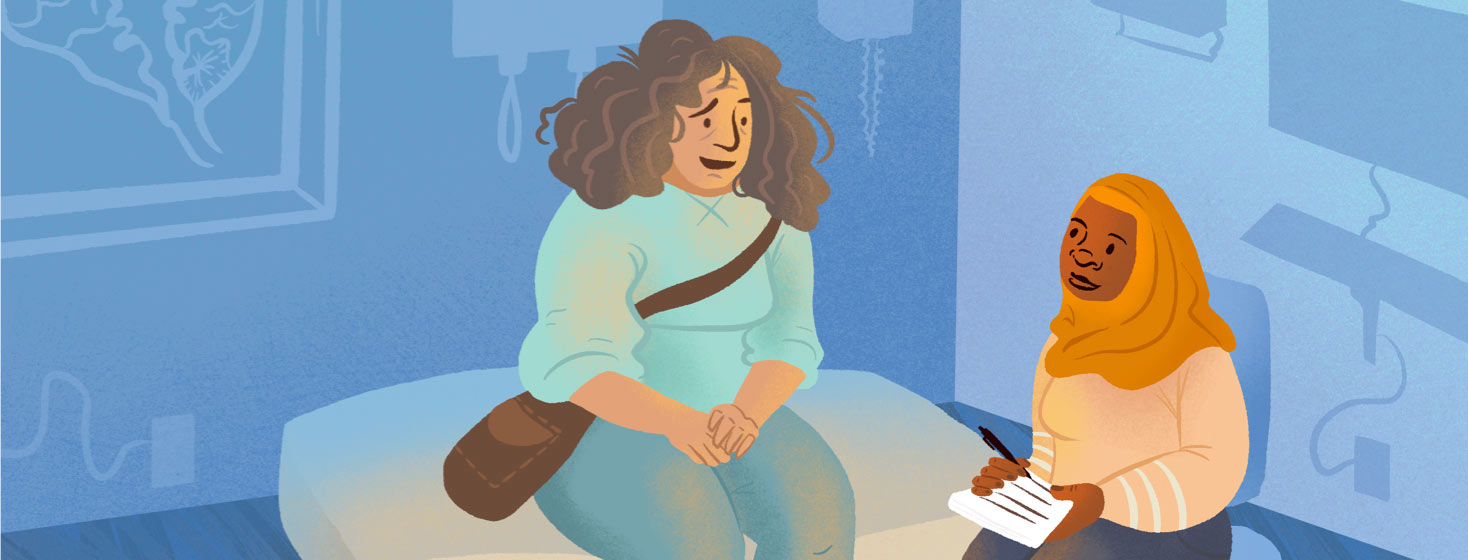6 Unexpected Experiences I Had With a Health Coach
Since my health is compromised, I've resisted the idea of it being "coached." I have already sought help from several medical professionals and feel I'm doing my best within my limitations. So how could I possibly benefit from a health coach?
A health coach was not something I was considering at all. However, my husband's company started offering a free health coaching program last year, and he had a great experience with it. After listening to his enthusiasm weekly, I finally agreed to have one call. I expected it would be intrusive and unpleasant, but, to my surprise, it went extremely well.
Over the past few months, I've benefited from these 6 unexpectedly positive experiences with my health coach.
Kindness and flexibility for lupus symptoms
I've associated health coaching with rigidity; surely, there would be many rules and instructions that I would be unable to follow. On the contrary, my coach is meeting me where I'm at in ways that I didn't think were possible between a chronically ill person and a health coach.
She has thoughtfully adapted to my limitations, which can be severe. She listened and brainstormed with me over my challenges without judgment. It was a relief to be met with understanding and empathy about my obstacles to healthy eating, especially after others have been pushy or dismissive.
I shared that my fatigue was overwhelming after exercising for 30 minutes (my personal goal), so she encouraged me to try exercising in 5-minute intervals a couple of times a day. I was pushing myself too hard, and I've been able to exercise more overall by exercising for less time.
Value in logging food intake
One of the program's rules is to log all your calories in an app. I felt that would likely be too time-consuming for me and likely unhelpful. She encouraged me to try logging about 50 percent of the time, and I agreed to the compromise.
My average for tracking my food intake varies between 3 to 5 days each week. However, it is a much easier process than when I tried to track calories nearly 9 years ago. The app I'm using allows me to log calories quickly, and it also intuitively predicts foods based on my history. While my husband uses the app to decide what he's allowed to eat according to his remaining calories, I use it to reflect on my habits and learn about what I'm eating.
For example, I didn't realize the frozen sausage links I keep on hand for quick meals have 10 grams of fat per sausage. (I know, I could have read the package.) Learning about my foods has motivated me to try different foods that are more satisfying and provide me with more physical fullness and strength.
Small life changes make a big difference for lupus
I've heard "start with small changes" so many times that it barely registers anymore. However, my health coach gently proposed small changes tailored to my specific struggles, which have added up over time.
During each call, we talk about how I'm doing and come up with achievable goals together. We talked about how much protein could help combat fatigue, especially since fatigue leads me to poor diet choices.
Due to my various issues with eating and cooking, we decided to start with an afternoon protein shake. It turned out to be great (once I found a tasty one) because I could quickly get in protein while keeping up with my kids.
When I have protein in the afternoons, I often make better choices for dinner because I'm not as hungry. This small step led to another, and, within a few weeks, I started cooking meals occasionally, which was a huge win for me.
Abundant praise from my health coach
When I walked half a mile, my health coach celebrated; the same happened when I scheduled an appointment with a therapist for my mental health. I saw these as simple tasks I should have already been doing, but she saw them as valuable achievements and progress.
This praise didn't have anything to do with my weight or diet. She checks in with me often – without pressure. This support helped me a lot during an especially difficult time in my life.
Help in a health crisis
A few months ago, I learned that I had gallstones. Shortly afterward, I received resources from my health coach with recipes and recommendations for eating foods and what to avoid with gallbladder issues.
About a week after this discovery, I had a gallbladder attack that landed me in the emergency room. It felt very sudden, and I was at risk of infection or blockage. With all the pain and restrictions, I didn't know how to make it through the 2 weeks until my gallbladder removal surgery.
I changed my diet drastically to avoid another attack and potentially emergent surgery. I'm thankful my health coach was on my team as I went through this. It was overwhelming and intimidating, but it helped that she was there for me throughout the process.
I have made progress
I knew there was room for improvement, but I didn't think I could improve. My health coach provided extensive knowledge and help that made healthier eating more accessible to me. And a more nutritious diet can be a launching point to feeling better when you have lupus.
Since I started the program, I've lost 15 pounds, but my progress isn't measured solely by my weight. It's measured by my mindset, shift towards trying new and better foods, and how much I've learned along the way.

Join the conversation